How To Apply International SEO To Your Multilingual Web Content
Do you want to prepare your website for international markets? Do you want to generate traffic to your website on come out on top in the search results in your target language? Then SEO localization is definitely something you need to incorporate in your expansion strategy. When you are optimizing for International SEO, you are making your multilingual website easy to detect by Google and other Search Engines in terms of language, country, and user intent.
The role of a Language Service Provider (LSP), becomes crucial in the process of obtaining and implementing the correct set of multilingual keywords with a keen eye on both linguistic and cultural integrity. Let us expand on the best practices when it comes to Keyword Localization, and how to best employ SEO localization to start gaining authority in your target market(s).?
The role of a Language Service Provider (LSP), becomes crucial in the process of obtaining and implementing the correct set of multilingual keywords with a keen eye on both linguistic and cultural integrity. Let us expand on the best practices when it comes to Keyword Localization, and how to best employ SEO localization to start gaining authority in your target market(s).?
Keyword Localization Best Practices
Choosing the right keywords is an essential part of SEO Localization. Let’s have a closer look at what that actually means, and which steps you need to take to apply effective Keyword Localization.
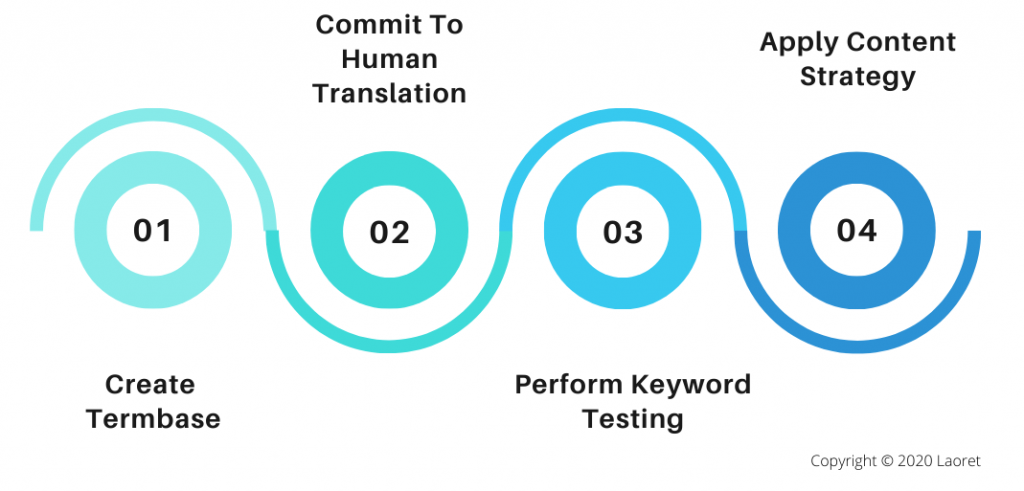
Create A Term-base
Start by extracting key terms from your source text that you wish to be localized. These should include:
- Specific product keywords and, if needed, comments that clarify their context and usage. Remember that context can be essential for linguists to determine which translation would work best.
- Keywords that are unique to the identity of your brand. Here, you can also provide some feedback on what you are looking to communicate specifically.
- Informational keywords you’d like to see localized that effectively describe the features of your products, services, and solutions. These often include specific adjectives or nouns.
- Transactional and navigational keywords that will guide your users in the purchasing process, if it is applicable. It is important to create an authentic buyer experience by developing the an appropriate terminology database. Especially since the majority of internet users feel more comfortable purchasing products in their own language, you don’t want to lose credibility by using poorly translated keywords for these crucial buyer actions.
With SEO Translation, Commit To Human Translation Exclusively
It might be tempting to just run the keywords through a Machine Engine, but note that the generic translation produced by these engines, is rarely the optimal one to use. While Machine Translation has its place within a well developed content strategy, it should be avoided when performing SEO Localization. The benefits of working with highly trained linguists include:
- The best linguists are native, in-country professionals. They understand your audience and will select the keywords that are most familiar and most appropriate to the local market. This means that they will never settle for a generic translation, but rather apply one that suits the country and region.
- Experienced linguists can take both language and culture into account. For example, if you need to translate the word “car†in Spanish, “coche†is often used in Spain while in Argentina, this word can also refer to a baby stroller, and the word “auto†might be more appropriate.
- A skilled linguist, especially one employed by an LSP, knows how to effectively utilize a Language (CAT) Tool. This allows for glossaries and a Translation Memory (TM) to streamline the process for this and any future projects, and also adds a level of Quality Assurance.
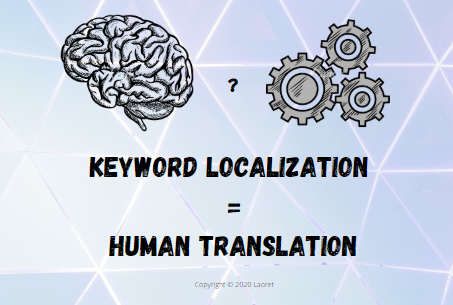
Perform Reliable Keyword Testing
Make sure your keywords are accurate to (local) search engines. Test the keywords’ difficulty score and, if it first your strategy and content goals, consider using the low-frequency long-tail keyword, or so-called “low hanging fruitâ€, that will shape your authority even on more specific topics in your niche.
But remember, the quality and success of your keywords don’t only depend on how you measure up to your competition. They should follow the internal logic of the corresponding pages on your website and always strive for quality and relevance.
Pro Tip! One of the most useful and reliable tools to use during the keyword translation and localization process is Google Trends. You can use it to see how your localized keywords are performing against the user queries and searches, ensuring that you are choosing the translation that is accurate and also has high user search volume.
SEO Localization And Content Strategy
So, you have your localized keywords. What now? Proceed by committing to the SEO Best Practices that also define your source language optimization. What is really different here, is the fact that your content, not just your keywords, will need to be geared towards your new audience. Remember, an effective International SEO Strategy requires you to utilize the SEO Blueprint in a way that is invisible to readers.
The same is true when it comes to the rest of your content. Localization is all about allowing your reader to experience the content as if it was only ever written for them. Insert expressions and sayings they are familiar with. Think about which colors, photos, or even structure would appeal.
Pro Tip! While localizing your content is all about tweaking the source content to fit your target audience, Transcreation is a service that goes further than that, and creates content that will engage with them in a highly original and altogether more emotional way. Learn More About The Value And Application Of Transcreation.
Keep Other Search Engines In Mind In Your SEO Localization Strategy
Google may be the powerhouse of Search Engines, but it is not the only one out there.1 Note that for example in China, one of the fastest-growing markets, Baidu is the dominant engine.
But, you shouldn’t only think country-specific. If you are a Mobile App Developer looking to localize your content, SEO Localization is just as important for you. App Stores are a specific kind of Search Engines themselves and ranking in those, will vastly increase your download potential.
Technical And Off-Site SEO Localization: A Quick Guide
While Keyword Localization is the part of the process where LSPs excel, it is only one slice of the cake. Let us offer you a quick overview of the best practices when it comes to the Technical and Off-site aspects of SEO localization. There are three core practices to include in your Technical and Off-Site International SEO Strategy: Language Targeting, Country Targeting, and locale-specific Backlinking.
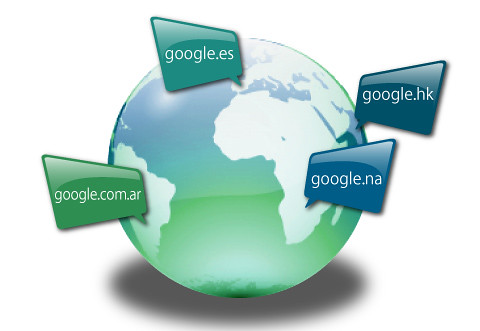
Use Language-Targeting With Meta Language Tags
If you want to tell the Search Engine you are targeting the website for a specific language, you will need to use Language Tags. By using the hreflang HTML attribute, you will communicate exactly which language your site is supporting. Have a look at this example that clearly communicates to Google that your content is available in Spanish:
Apply Country Targeting Through International URL Strategies
When it comes to URL structures, there are a couple of ways to go, three of which are the most commonly used:
- Country Code Top Level Domain (ccTLDs) send the most clear signal to the Search Engines and as a result, will help you rank. That being said, they are pretty expensive when it comes to maintenance.
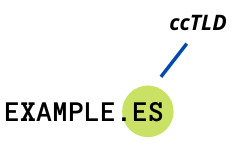
- Subdomains are far easier to maintain than ccTLDs and still uphold strong domain authority, but they do send weaker signals to the Search Engines.
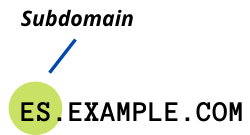
- Subfolders are also very easy to maintain, but may not uphold a strong domain authority like the Subdomains.
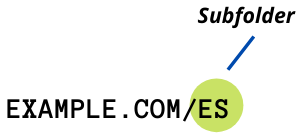
Use An Effective Backlinking Strategy
When building authority for your brand, acquiring quality backlinks is an important piece of the puzzle. Backlinks provide you with a whole new audience that flows in form a different website with high authority related to your industry. Of course, the US version of your page will support different kinds of backlinks than for example, the Japanese one. In this, familiarize yourself with the other markets and see which websites out there can offer you backlinks that:
- Come from a website that boasts high domain authority
- Are relevant to your mission and subject-matter
- Has a lot of traffic and a healthy Social Media presence you can utilize
Always keep in mind the best backlinks are the ones your website acquired naturally, though.
Conclusion: SEO Localization for International Expansion
SEO localization is a multifaceted strategy that combines authentic and relevant keyword localization, with accurately implemented technical applications. Much like how you optimized the source language, SEO Localization is all about sending the right signals to Search Engines, while offering the best possible reading experience. At Laoret, we offer specialized localization services provided exclusively by native, in-country professionals. We ensure success by assigning only the most experienced linguists with an in-depth knowledge of your industry as well as your target locales.
Find more information on our pricing and languages page to make an informed decision. Ready to get started? Get a free quote!
Want to know exactly how you can rank with translated content and enter new markets?
Learn all about International SEO To Your Multilingual Web Content






